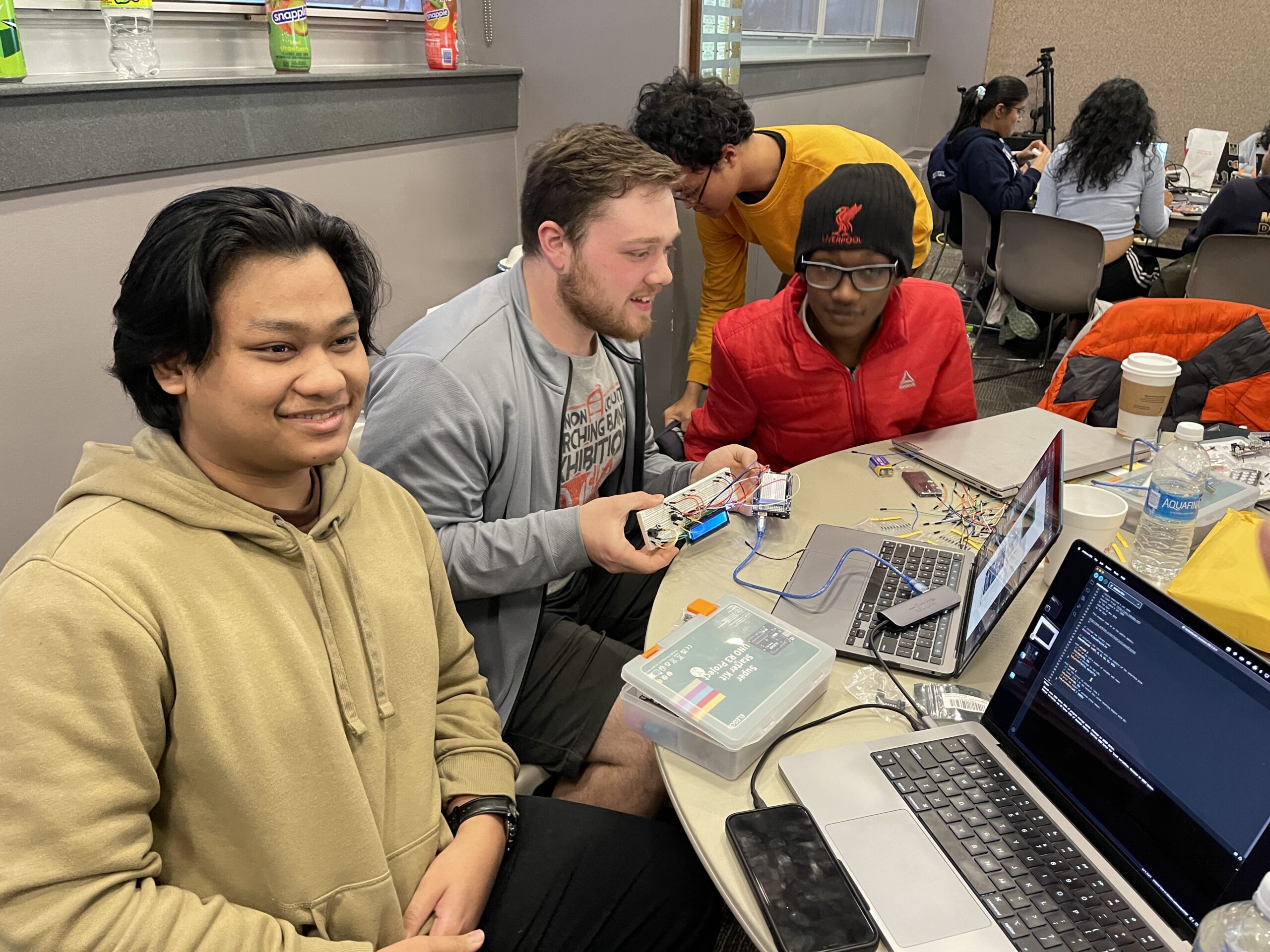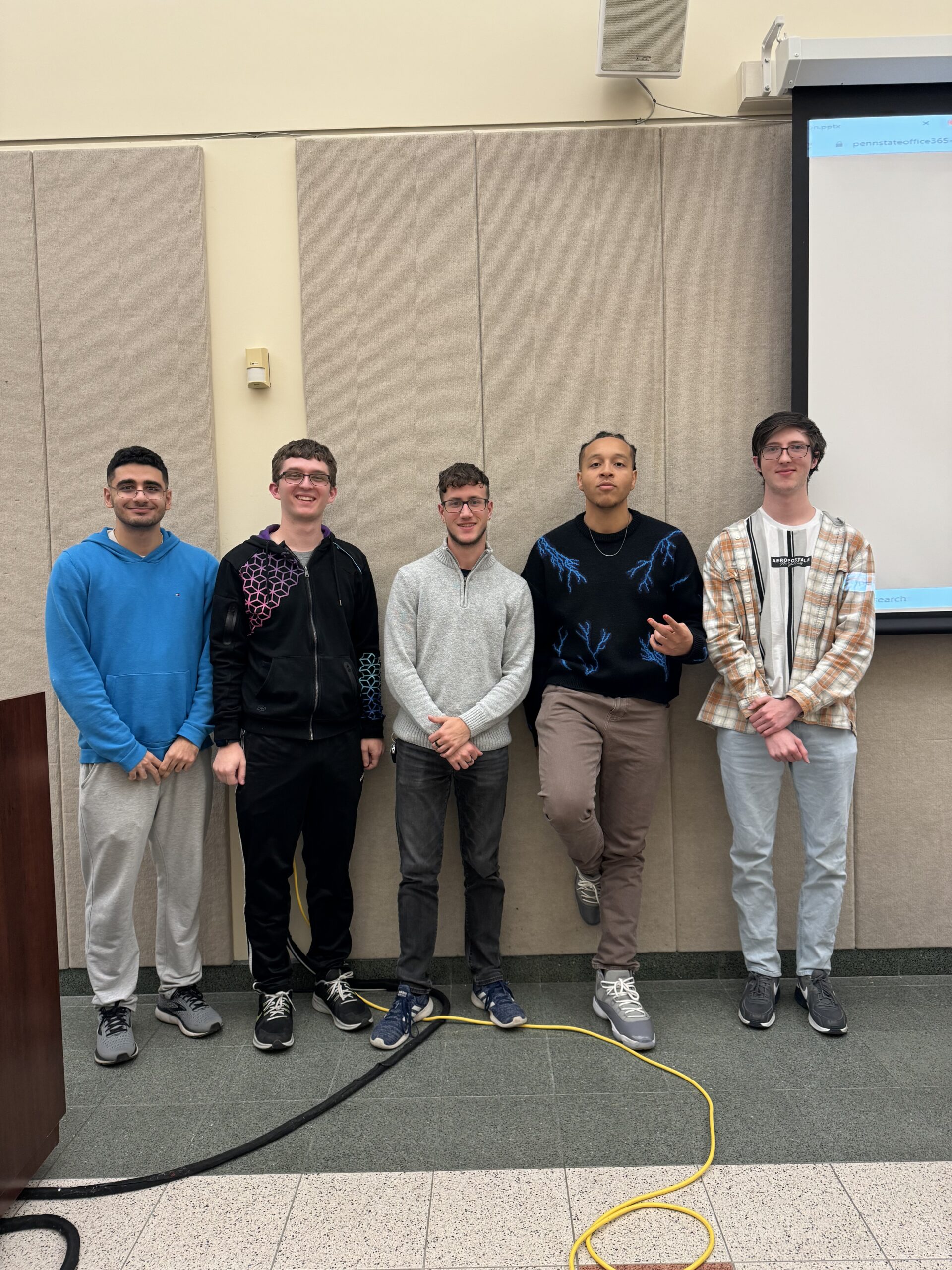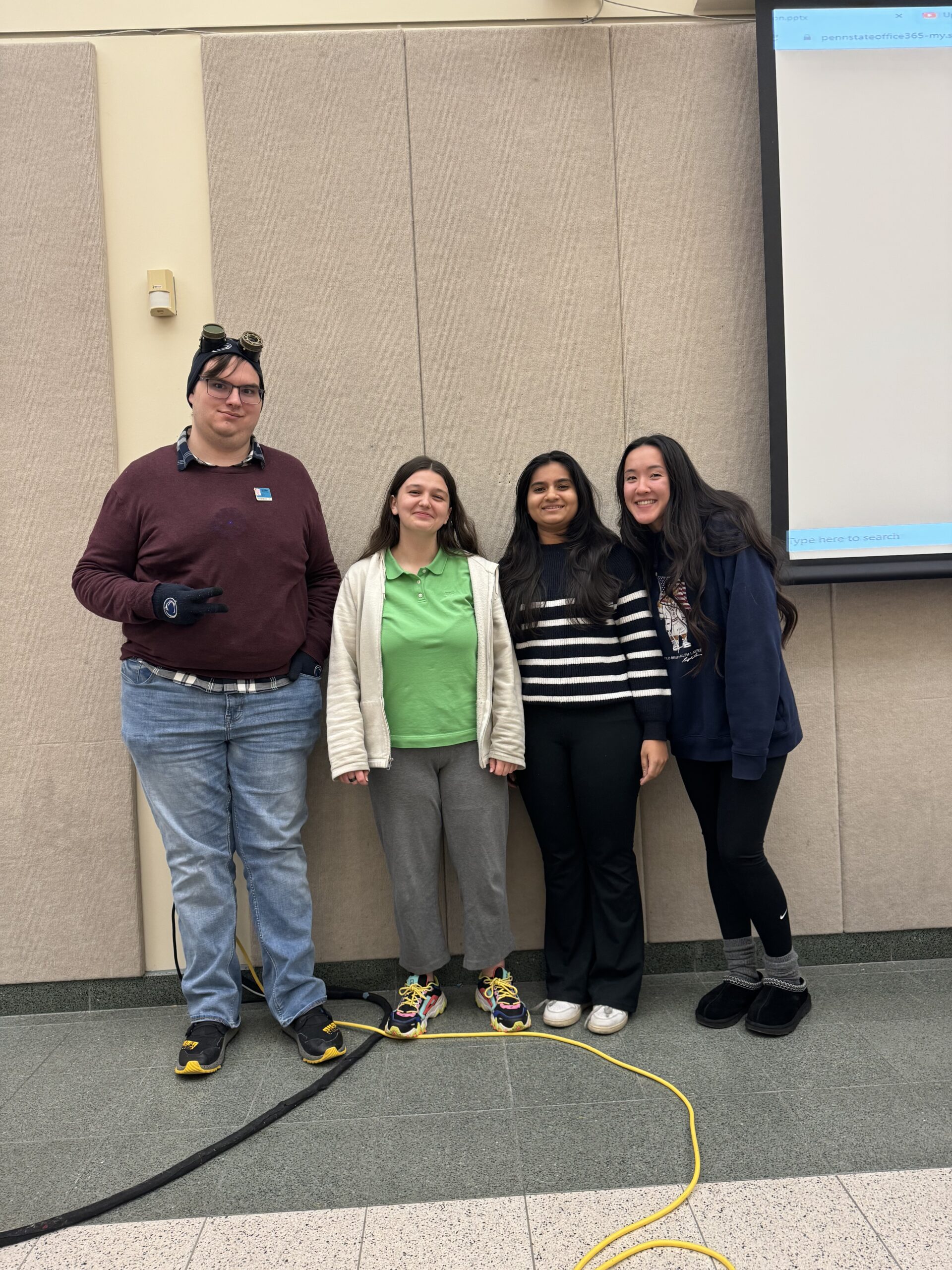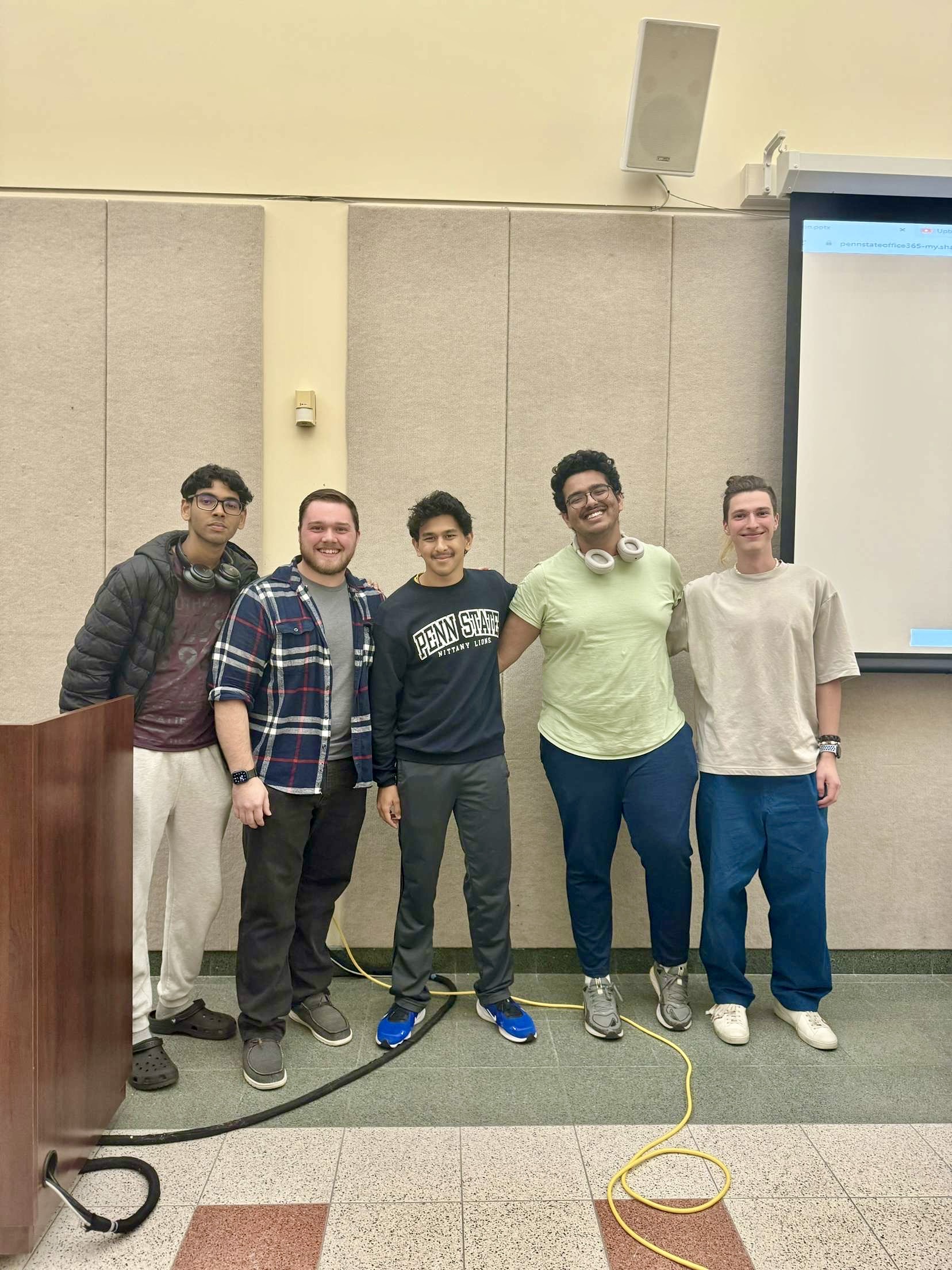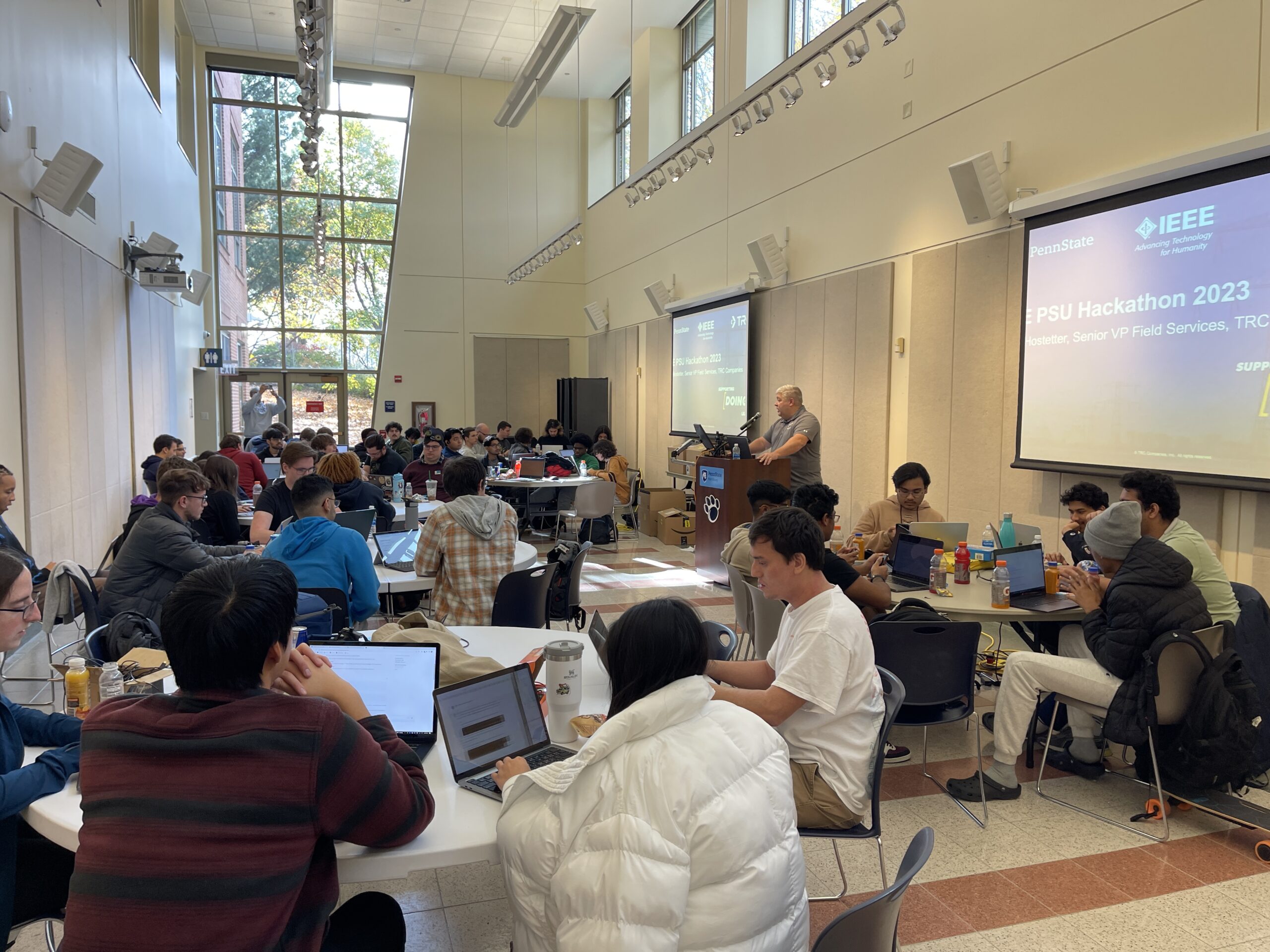
Launch of IEEE’s Hackathon at Penn State Harrisburg
The latest initiative of IEEE at Penn State Harrisburg is a Hackathon, brought to life by the efforts of Dinesh Umasankar and Jeremiah Ddumba. Dinesh, serving as the current Computer Science Lead within IEEE, has been instrumental in shaping this event. This Hackathon, designed and run by students, is a platform for peers from Computer Science, Electrical and Computing Engineering, Cyber Security, and various other disciplines to learn more about building circuits, decrypting secrets, and solving programming problems. Notably, it’s the first such event hosted by the university since 2012, addressing a long-standing demand among students.
This Hackathon stands out by blending both software and hardware elements, rather than focusing solely on software. Participants tackle a range of software challenges on Hackerrank, from basic tasks like writing a “Hello World” program to more complex problems, such as developing an algorithm to minimize the waiting time in a hypothetical pizza restaurant.
In addition to software, a significant aspect of the Hackathon is its hands-on hardware experience. Each student receives a comprehensive Arduino starter kit to keep, which they use in various hardware-based challenges. Looking ahead, the next Hackathon plans to incorporate Raspberry Pi Picos, further expanding the scope of hardware experimentation.
Currently, the IEEE-run Hackathon is a 12-hour marathon, stretching from 10 AM to 10 PM. This event is not just about trying to be the best; it also includes meals, refreshments, raffles, and games fostering a community atmosphere and keeping participants energized throughout the day. We also collect all the participant’s resumes and compile them into a resume book to give to our corporate sponsors.
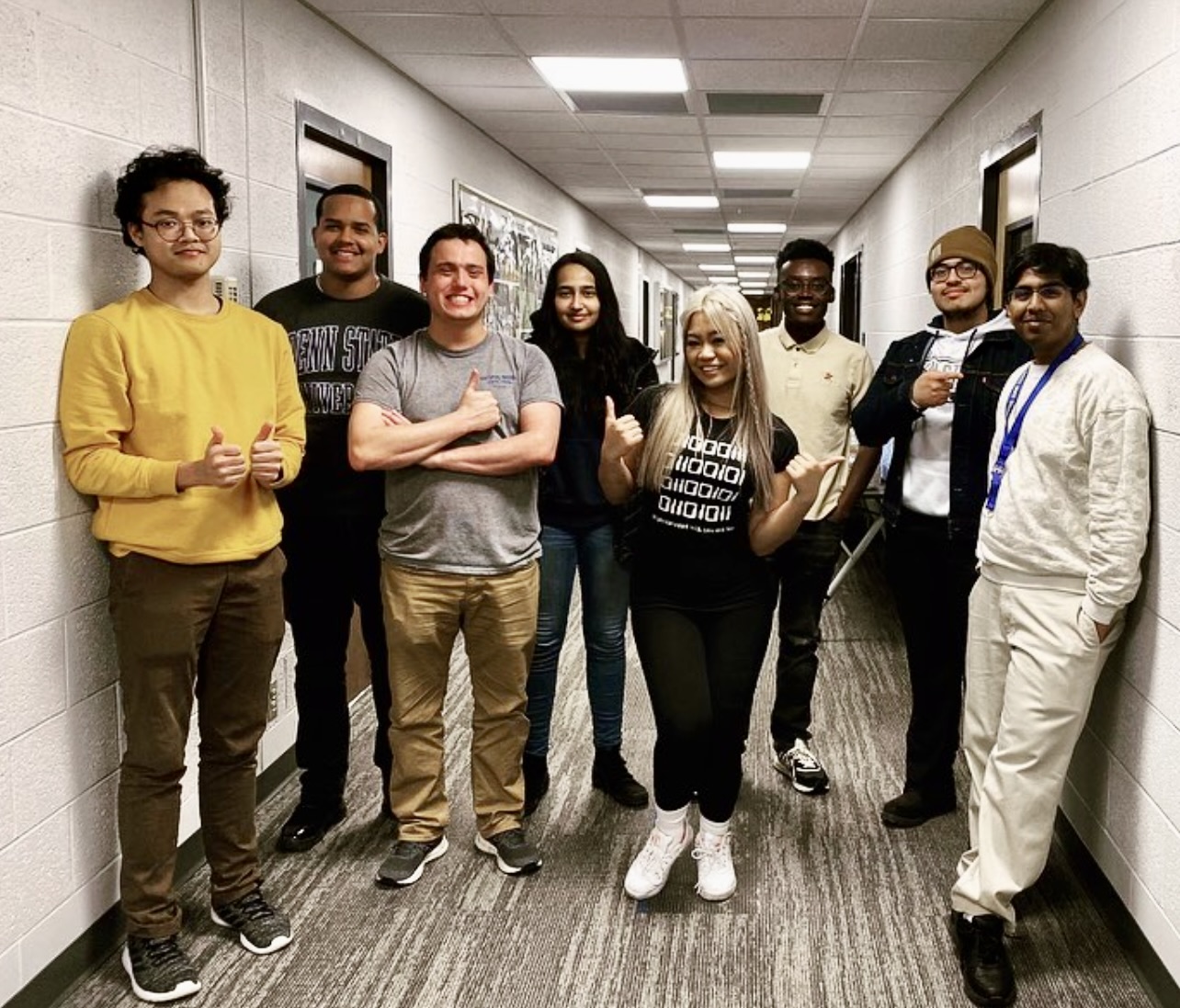
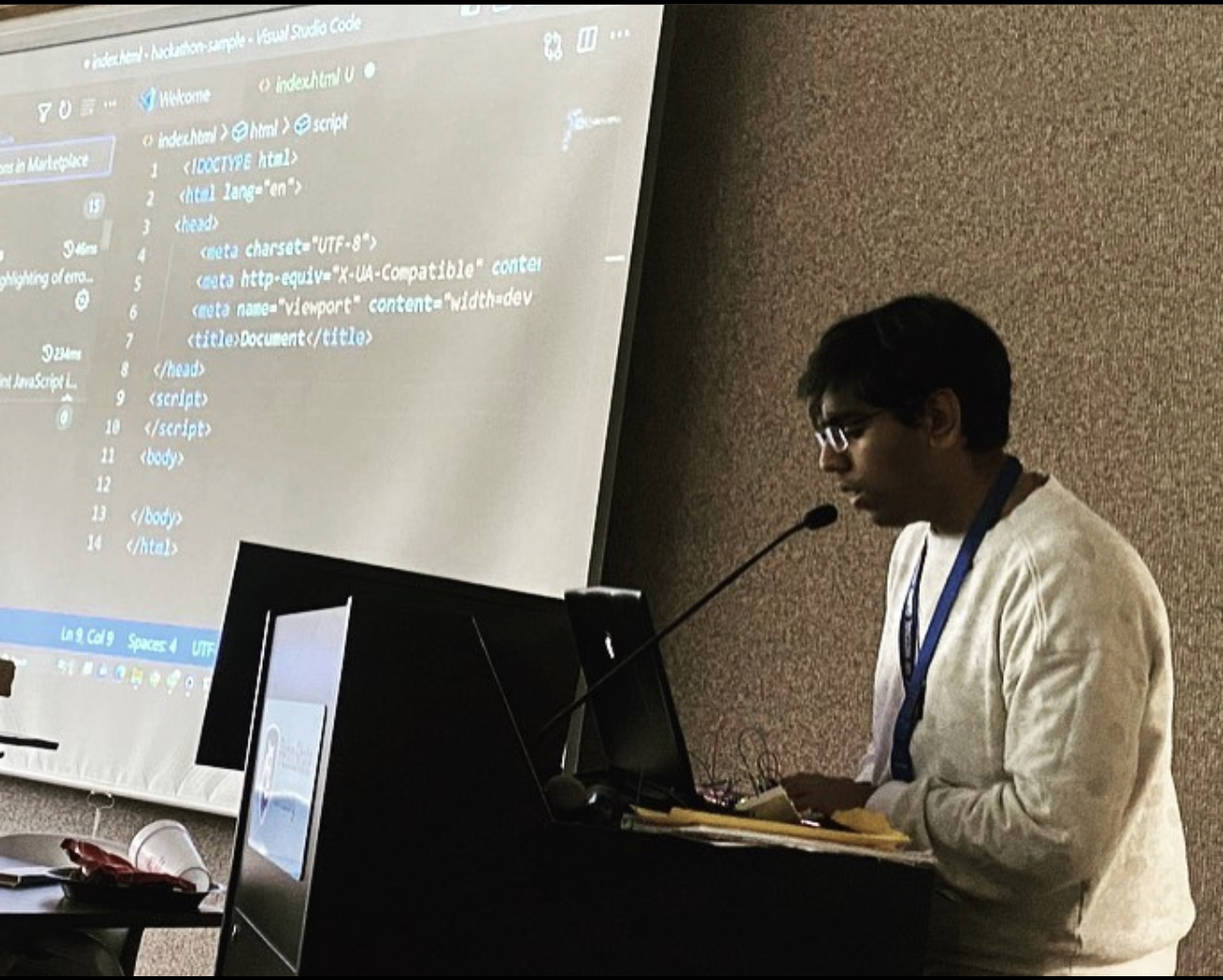
Past Hackathons
In our initial foray into hosting a Hackathon at Penn State Harrisburg, we established a partnership with the Association for Computing Machinery (ACM). What set our Hackathon apart was its integration of both software and hardware components, challenging students to create unique Bluetooth projects during the event.
The Spring 2023 Hackathon was led by Dinesh Umasankar and Jeremiah Ddumba. The team organized a two-phase event, dividing the challenges into software and hardware categories. Educational workshops were a key feature; these included an introduction to GitHub, setting up and using repositories, as well as practical sessions on basic electronics like using breadboards and Arduino. One notable activity was the ‘brown bag’ competition, where students utilized Arduino super starter kits to construct various devices. Challenges included building a clock displaying numbers from 1 to 9999 and creating a sequence of differently colored LEDs that could blink in a specific order. This event contributed significantly to IEEE’s recognition as the Best Club of the Year and also earned a nomination among the top five events of the year. This inaugural event attracted over 65 participants, marking a successful start to the Hackathon series.
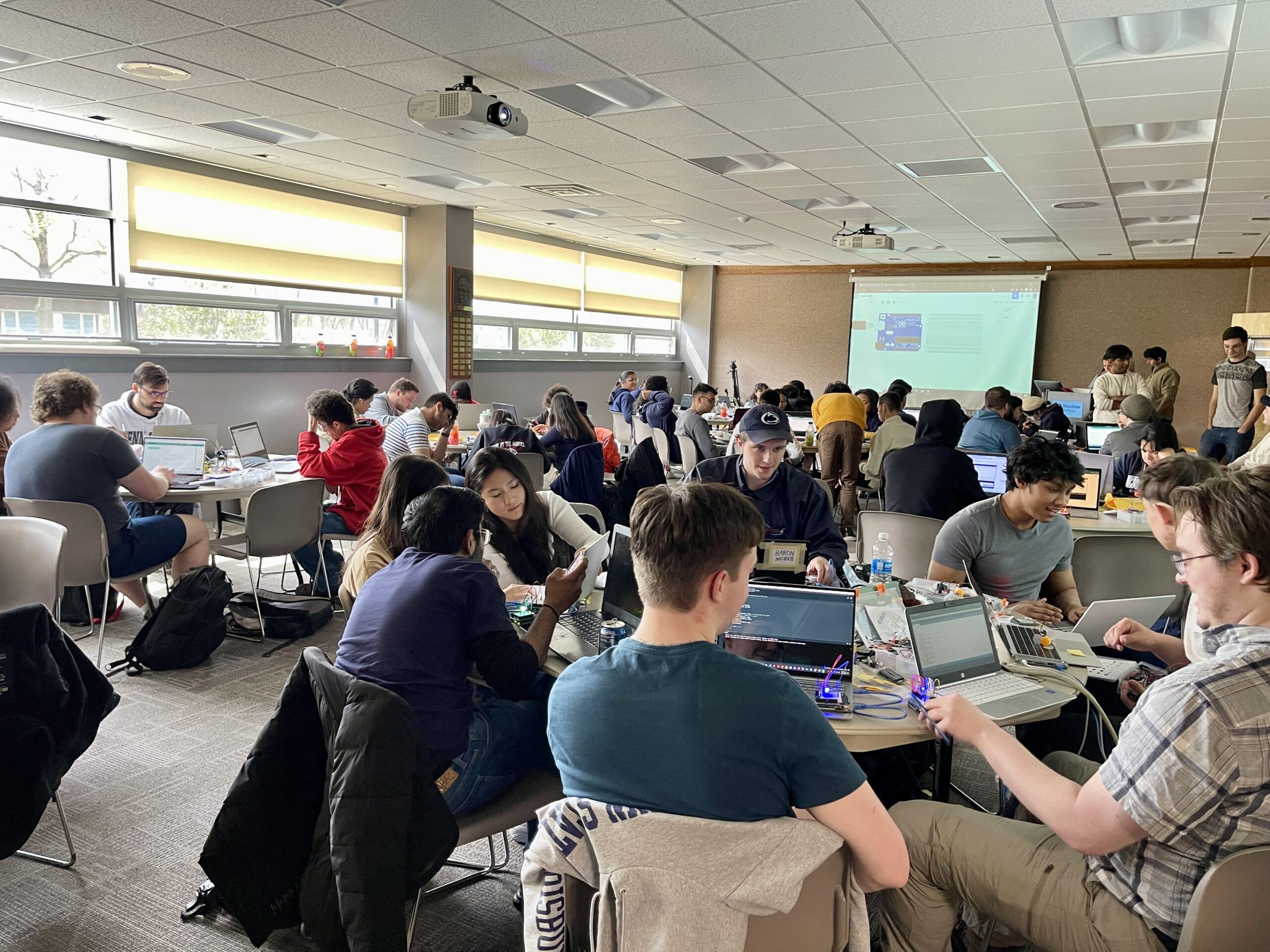
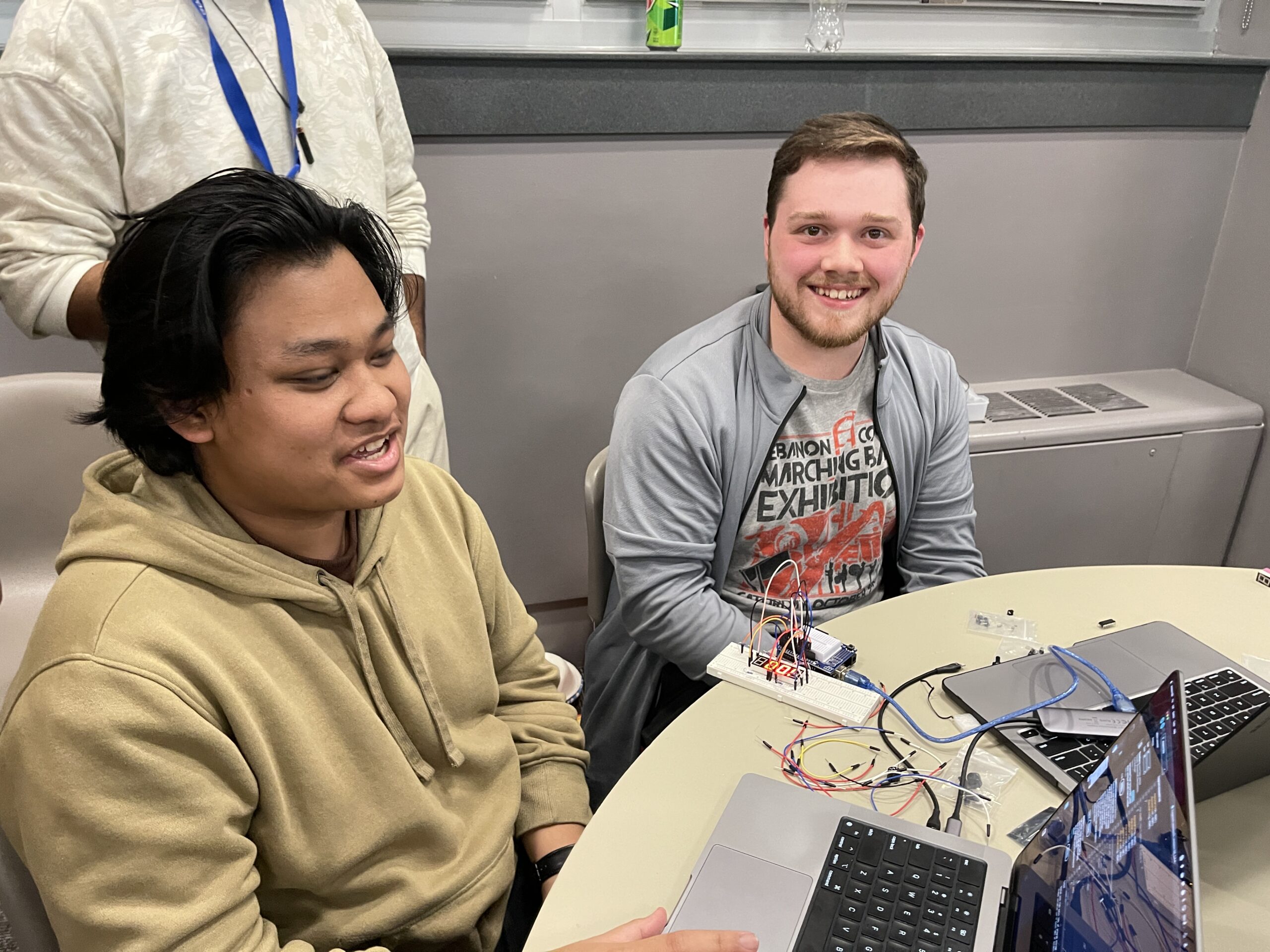
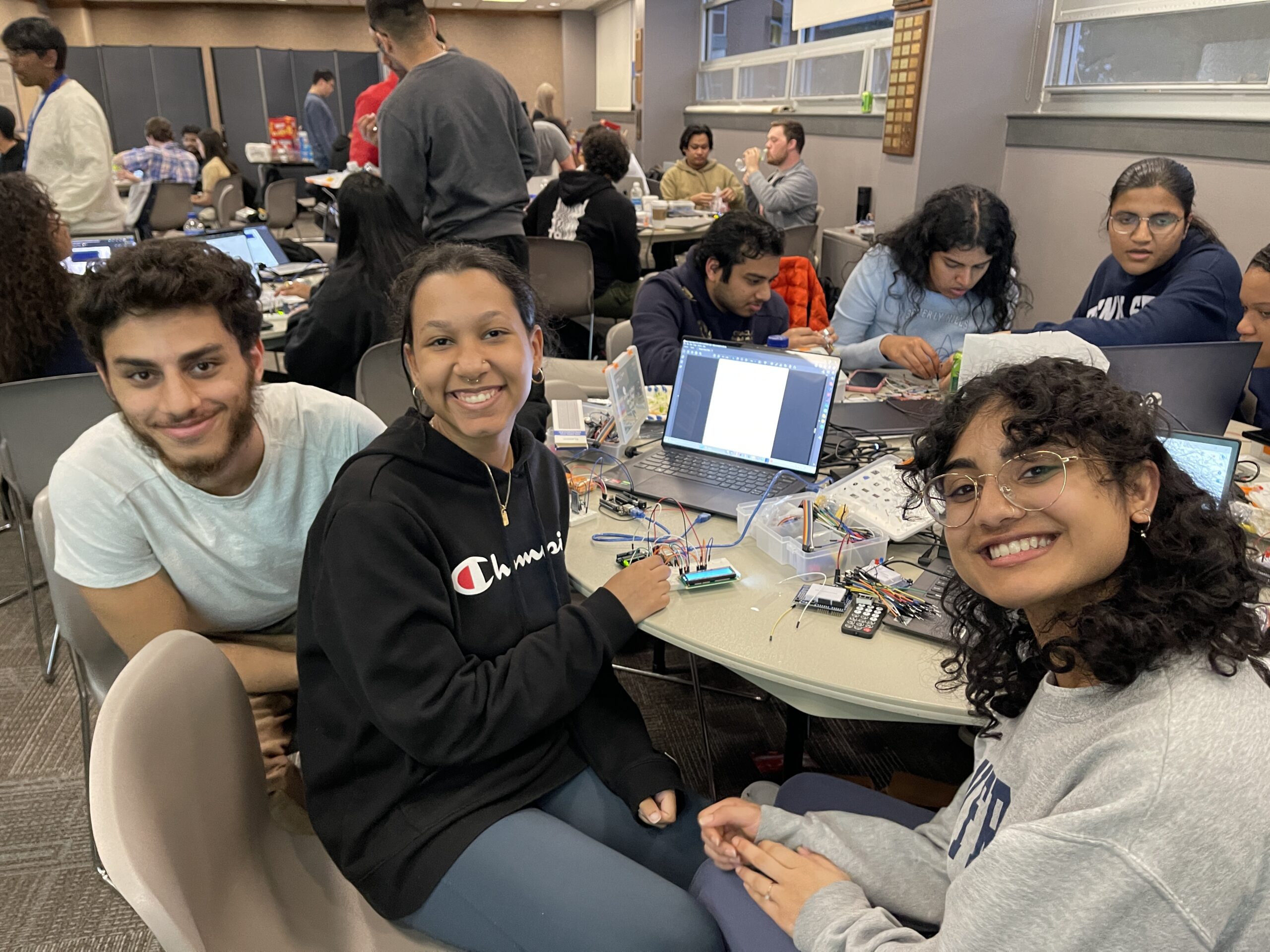
The subsequent Fall 2023 Hackathon, led by Dinesh Umasankar, John Nguyen, Joyce Buhano, and Jeremiah Ddumba, expanded the scope of the event. We split the Hackathon into three segments: software challenges, a project section, and a project session, specifically designed to broaden the scope of computer science students. To streamline the event, we developed Hackpsh.org, a centralized platform for managing the Hackathon. This site not only facilitated the organization of the event but also hosted over 26 diverse software challenges through integration with HackerRank. Participants engaged in creating Penn State-themed projects using comprehensive Arduino kits, and then presenting their functional projects to judges, evaluating their potential impact or solutions to campus-related issues. The project portion was created and run by Bramantyo Bhaskoro The event also featured more ‘brown bag’ competitions, with tasks like programming an LED to blink at different rates using a pedometer, controlling a stepper motor with a rotary encoder, and assembling a mini weather station. This Hackathon attracted over 67 participants, marking another successful Hackathon.
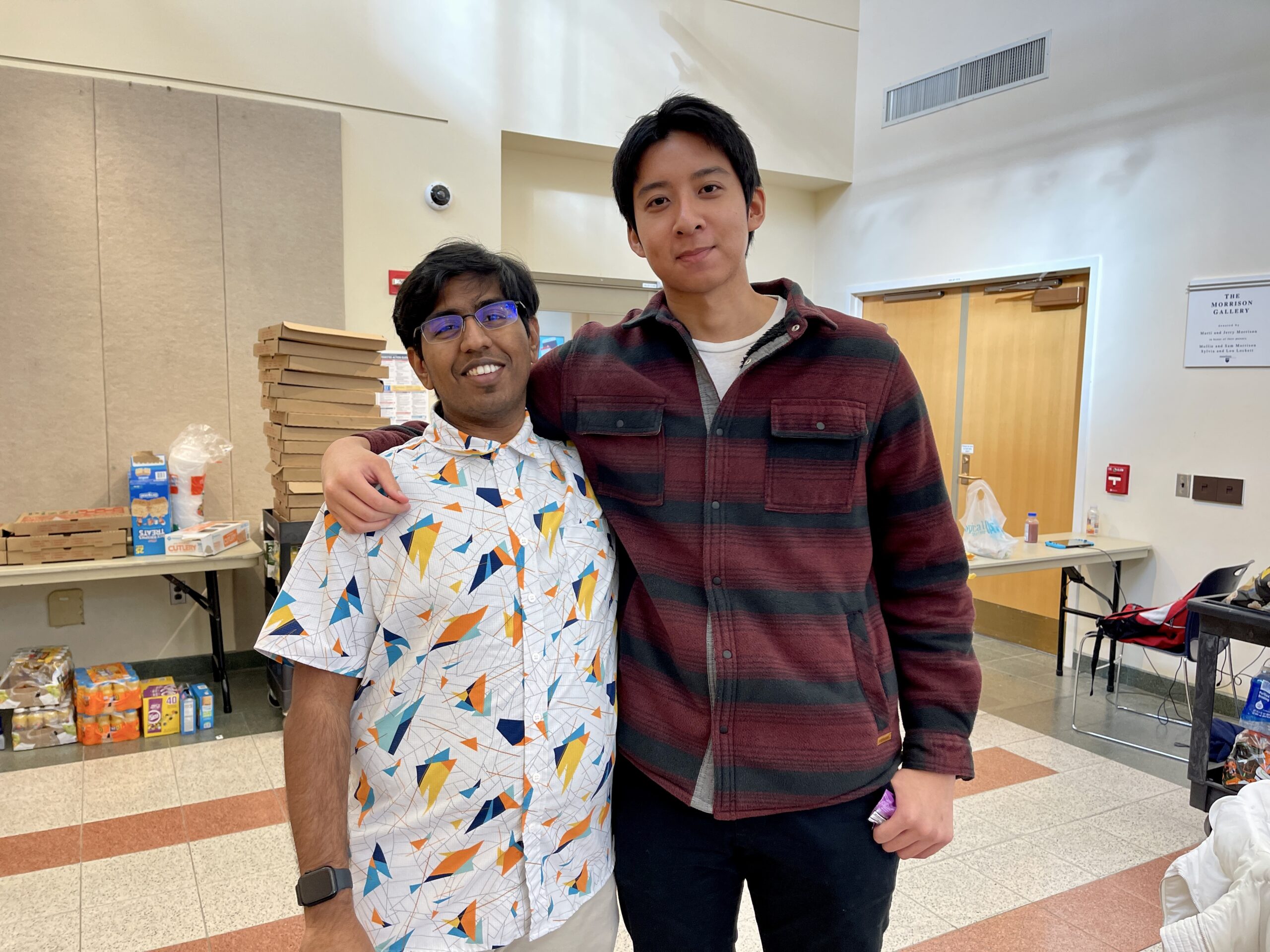
Dinesh Umasankar and John Nguyen
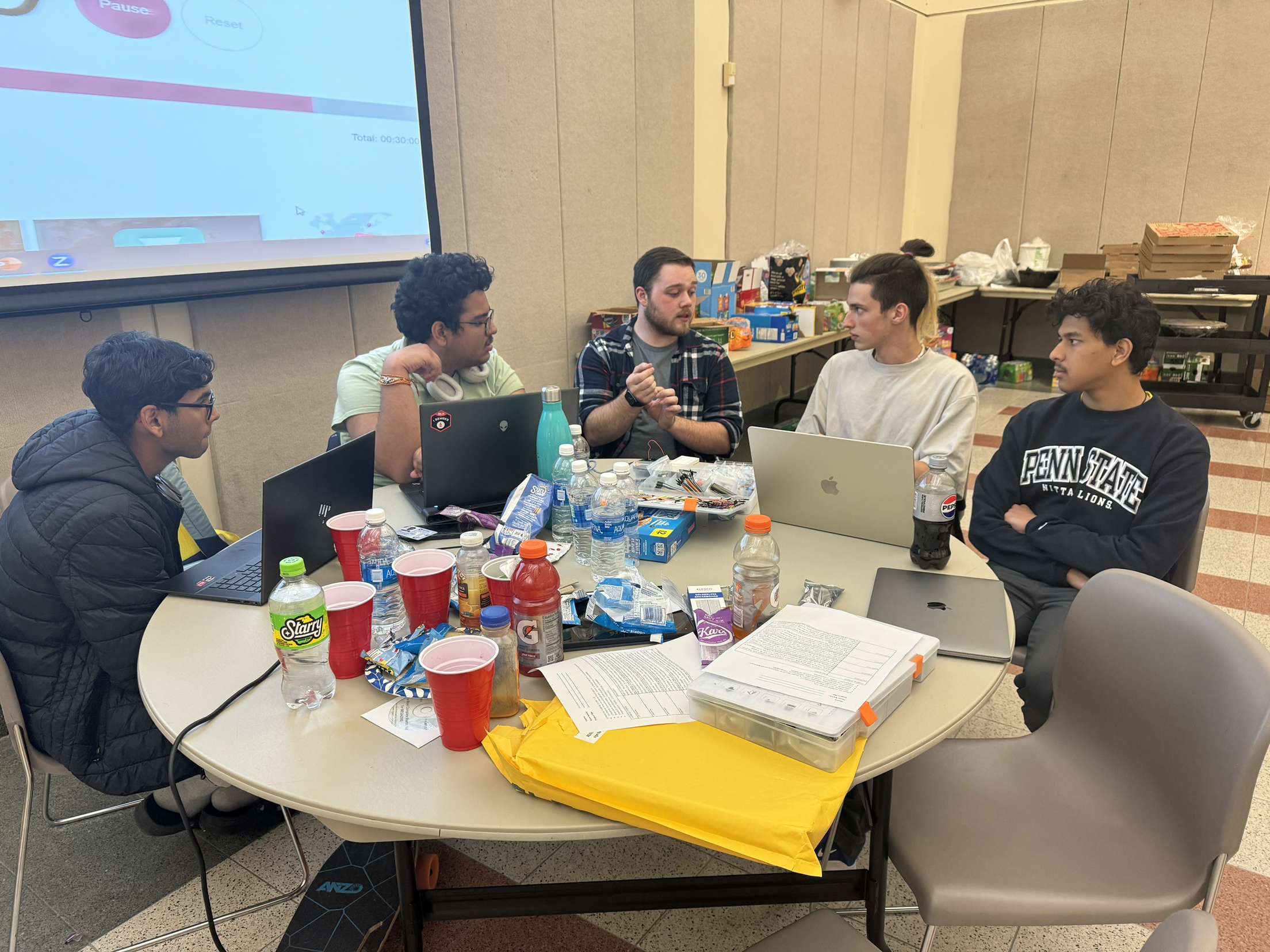
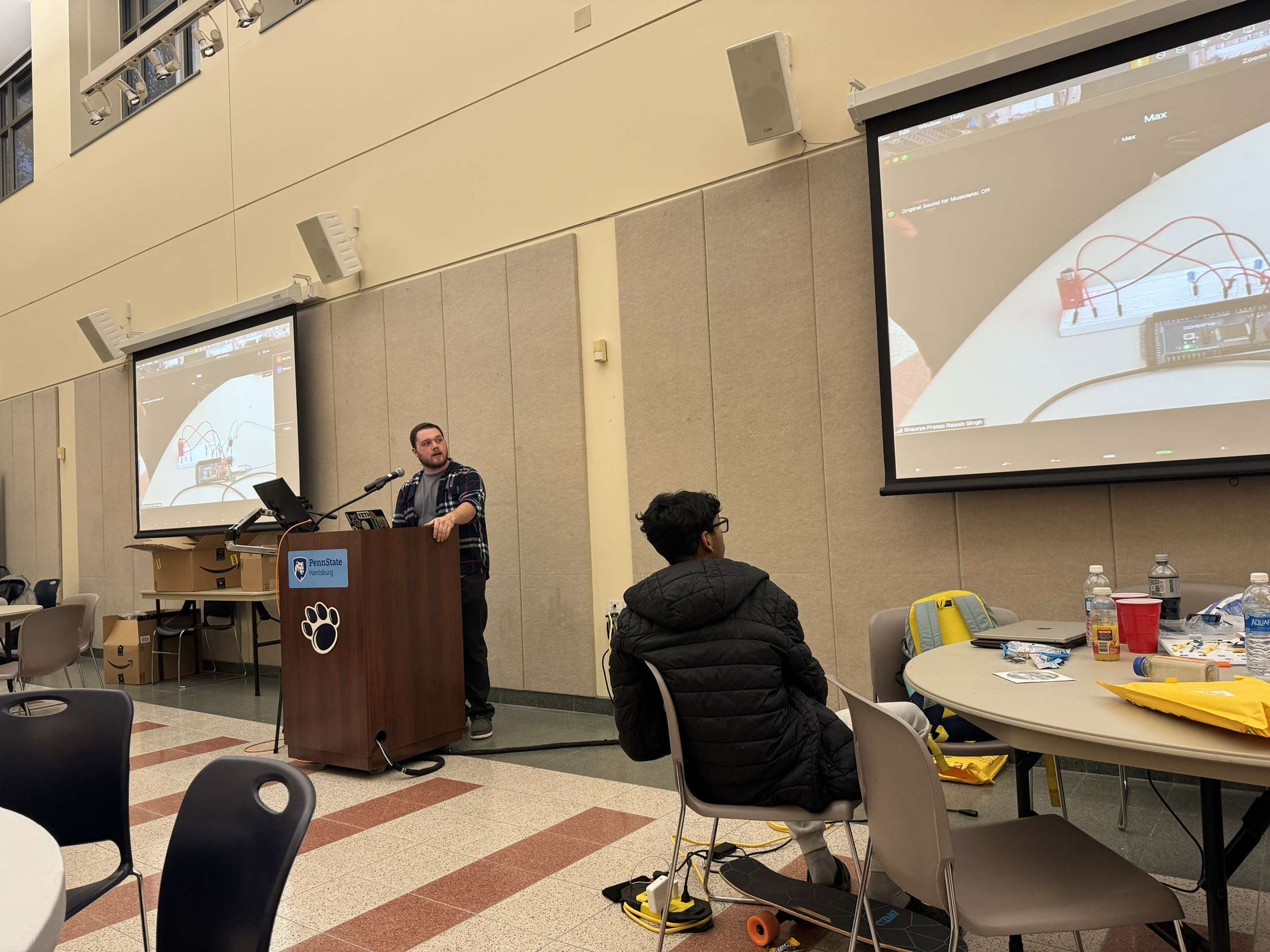

Development of Hackpsh.org Platform
The Hackpsh.org platform, developed under the leadership of Dinesh Umasankar, John Nguyen, Joyce Buhano, and other team members, played a crucial role in the success of our Hackathons. With the expansion of our team, including Juliana Lenge, Moses Madavaram, Xinyan Li, and Rizzie Lu, we are introducing new features to further enhance the platform for upcoming hackathons. Created for the Institute of Electrical and Electronics Engineers (IEEE), the platform is designed to offer interactive challenges, streamline user and team management, and incorporate a leaderboard system. It aims to be universally accessible, focusing on educating participants in Electrical Engineering (EE) and Computer Science (CS) principles. To improve the event experience, additional functionalities are being added, such as event management tools for announcements and content management, which include the creation of challenges and the organization of teams.
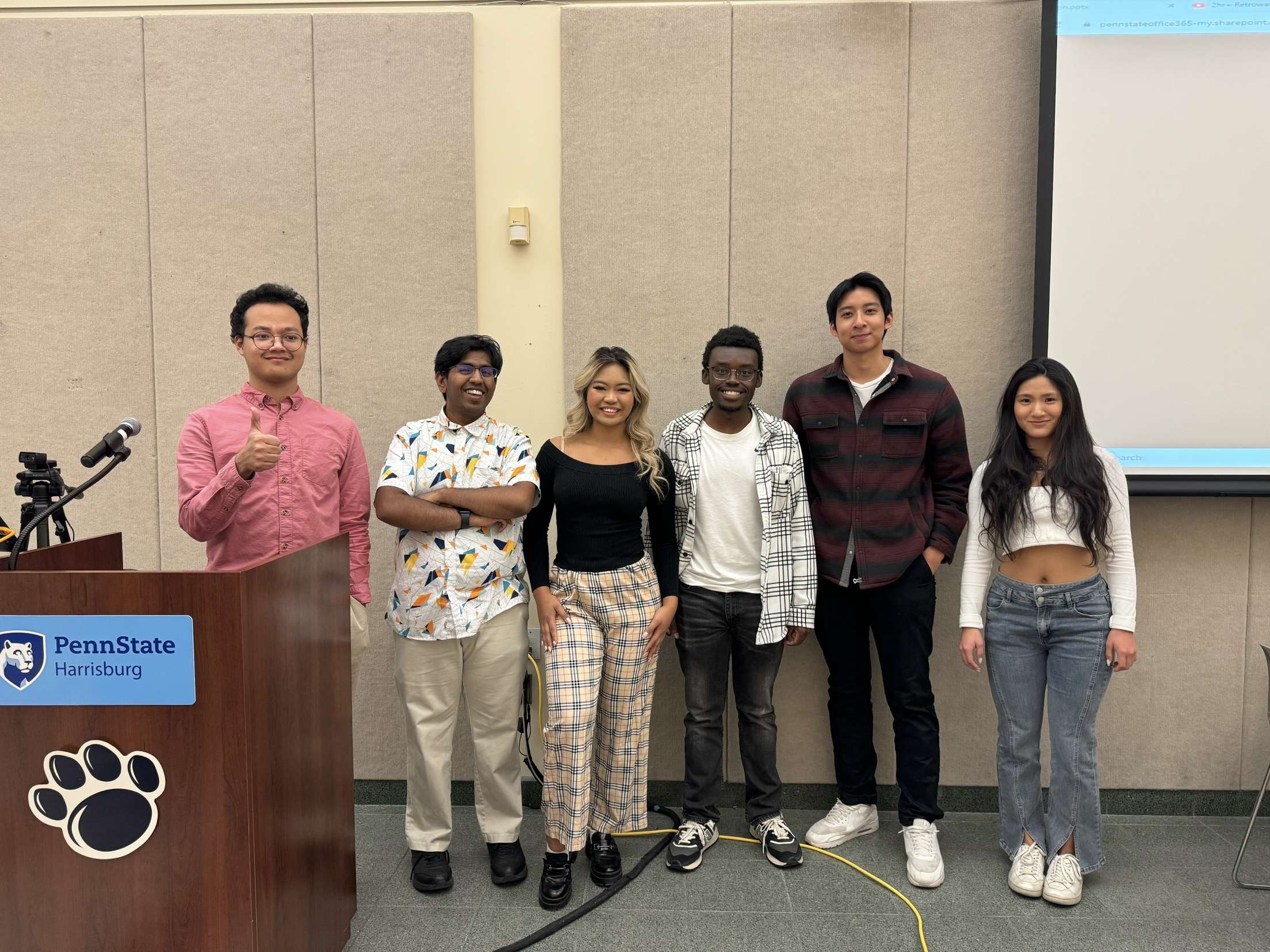
Funding the hackathons
The financing of our hackathons has been expertly led by IEEE Corporate Liaison Michael Villalona and the club President Jeremiah Ddumba, with an impressive average of $10,000 raised for each event. Michael Villalona has played a key role in securing additional funding from external sources, crucially supplementing the limited budgets of the university and IEEE. His approach involved crafting tailored funding packages for each company, complete with informative slideshows and pamphlets that highlight the achievements and benefits of supporting the hackathon. His effective negotiation skills have been vital in this process. His successful partnerships with Capstone Gemini, Air National Guard Recruiting, and TRC Companies, Inc. have resulted in over $3,500 allocated for prizes, merchandise, and meals at the hackathons.
Jeremiah Ddumba’s contributions have been equally vital, focusing on garnering support from Penn State University. His submission of several well-crafted proposals has convinced the university to provide significant funding, amounting to over $26,504.92. This substantial contribution has been essential for providing the most complete Arduino starter kits or Raspberry PI Pico kits to participants, securing suitable event spaces, and ensuring the availability of snacks and raffle prizes for the events.
Upcoming Hackathon and New Ideas
Looking forward to our next Hackathon on March 23rd, 2024 in the Educational Activities Building, Room 103, we’re refining our platform to align with our vision. This upcoming hackathon is under the leadership of John Nguyen, Dinesh Umasankar, and Jeremiah Ddumba. It will follow a format similar to our second Hackathon but with a new twist: replacing Arduino C++ programming with Python on Raspberry Pi Picos.
These Hackathons aren’t just about competition; they are about building a community around technology, learning, and professional growth. They offer a glimpse into the practical application of classroom theories and the exciting possibilities that collaboration brings.
